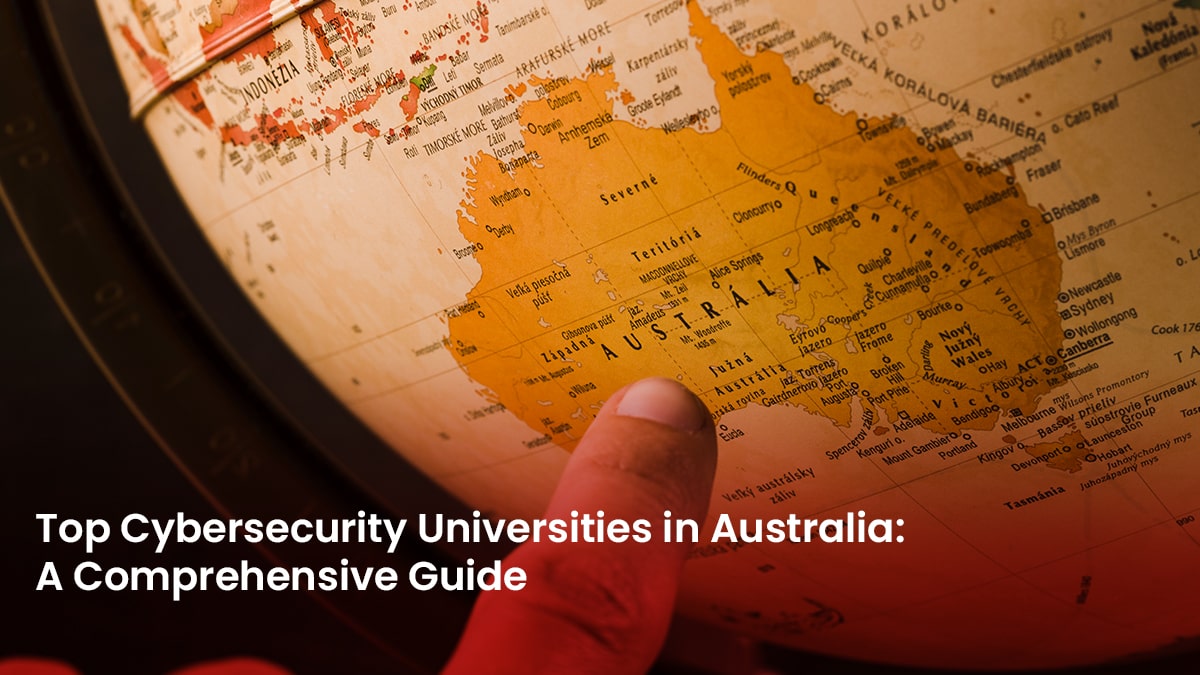With the rise of cyber threats across the globe, cybersecurity has become one of the most critical fields in today’s digital world. Australia has emerged as a top study destination for students aspiring to build a career in cybersecurity. With some of the best universities offering specialized programs, studying in Australia is an excellent choice for those aiming to excel in this field. This blog will explore the top cybersecurity universities in Australia, the courses they offer, and the career opportunities Australia available.
Why study cybersecurity in Australia?
Australia’s education system is well-regarded globally, and its universities are known for cutting-edge research and close ties with the cybersecurity industry. Here’s why you should consider studying cybersecurity in Australia:
- Global reputation: Australian universities rank among the best globally, providing quality education and research opportunities.
- High demand for cybersecurity professionals: Australia, like many other countries, is experiencing a shortage of qualified cybersecurity professionals, leading to high demand and excellent job prospects.
- Industry connections: Australian universities have strong links with industries, offering students internships, placements, and exposure to real-world cybersecurity challenges.
How to Choose Where to Study in Australia
Top Cybersecurity Universities in Australia
Here are the top cybersecurity universities in Australia offering top-notch programs in cybersecurity:
1. University of Melbourne
- Program: Master of Information Technology (Cybersecurity Specialization)
- Key features: Known for research-driven learning and industry collaborations, this program covers network security, cryptography, and data protection.
- Duration: 2 years
2. University of New South Wales (UNSW)
- Program: Master of Cybersecurity
- Key features: UNSW offers a practical and industry-focused curriculum covering ethical hacking, malware analysis, and network security.
- Duration: 2 years
3. RMIT University
- Program: Master of Cyber Security
- Key features: RMIT emphasizes hands-on learning, offering courses in digital forensics, cybersecurity policy, and network security.
- Duration: 2 years
4. Monash University
- Program: Master of Information Technology (Cybersecurity Specialization)
- Key features: Monash university offers a strong research focus, with access to industry partnerships and opportunities to work on real-world cybersecurity projects.
- Duration: 2 years
5. Deakin University
- Program: Master of Cyber Security
- Key features: Deakin offers flexible learning options, including both on-campus and online learning, making it accessible for international students.
- Duration: 1.5 to 2 years
5 Benefits of Studying Cybersecurity in the UK
Cybersecurity specializations in Australia
Cybersecurity is a broad field, and Australian universities offer a range of specializations. Below are some common areas of focus:
|
Specialization |
Description |
| Network security | Protecting networks from unauthorized access and cyber-attacks. |
| Cryptography | Techniques to secure communications and protect data from third parties. |
| Ethical hacking | Simulating cyber-attacks to find and fix system vulnerabilities. |
| Digital forensics | Investigating and analyzing digital data involved in cybercrimes. |
| Cloud security | Securing data stored in cloud environments and preventing cyber-attacks. |
These specializations help students focus on the aspects of cybersecurity that best match their interests and career goals.
Benefits of studying cybersecurity in Australia
Here are some of the key benefits of pursuing cybersecurity education in Australia:
- Industry exposure: Australian universities have strong partnerships with industry leaders, offering internships and job placement opportunities.
- Cutting-edge research: Many universities, including the University of Melbourne and Monash University, are at the forefront of cybersecurity research.
- Global recognition: Degrees from Australian universities are recognized globally, giving students an advantage in the international job market.
- Job opportunities: Australia’s cybersecurity sector is booming, with growing demand for qualified professionals in both the public and private sectors.
5 Top Courses to Study in Australia
Conclusion
The top cybersecurity universities in Australia provide students with the skills and knowledge required to excel in this dynamic field. Whether you’re interested in ethical hacking, network security, or digital forensics, these universities offer specialized programs to suit your career goals. Studying in Australia also gives you access to global job opportunities and industry connections that can launch a successful career in cybersecurity.
MSM Unify overseas education consultant will help to take next step in your cybersecurity journey by applying to one of the top universities in Australia and preparing yourself for a future in this growing field!
FAQs about studying cybersecurity in Australia
1. What are the top cybersecurity universities in Australia?
The top cybersecurity universities in Australia include the University of Melbourne, UNSW, Monash University, RMIT University, and Deakin University, all offering specialized programs in cybersecurity at both undergraduate and postgraduate levels.
2. Can international students apply for cybersecurity programs in Australia?
Yes, international students are eligible to apply for cybersecurity programs in Australia. These universities welcome students from across the globe and offer support services to help with australia student visa applications and accommodation.
3. What career options are available after a cybersecurity degree in Australia?
Graduates can work as cybersecurity analysts, ethical hackers, security consultants, or network security specialists. Many industries, including banking, government, and tech firms, are actively hiring cybersecurity professionals due to increased cyber threats.
4. Are Australian cybersecurity degrees recognized globally?
Yes, degrees from top Australian universities are recognized worldwide, making graduates eligible for job opportunities in various countries. Australian universities are known for high academic standards and partnerships with international tech companies.
5. How long does it take to complete a master’s degree in cybersecurity in Australia?
Typically, a master’s degree in cybersecurity in Australia takes between 1.5 to 2 years to complete. The exact duration may vary depending on whether the student opts for full-time or part-time study.
6. What are the entry requirements for cybersecurity programs in Australia?
Entry requirements usually include an undergraduate degree in a related field, proof of English language proficiency (such as IELTS or TOEFL scores), and, in some cases, relevant work experience or a strong academic background.
7. What is the average tuition fee for cybersecurity programs in Australia?
Tuition fees for cybersecurity programs in Australia vary by university but generally range from AUD 30,000 to AUD 50,000 per year for international students, depending on the program and level of study.
8. Can cybersecurity students in Australia participate in internships?
Yes, many Australian universities offer internship opportunities in collaboration with industry leaders, providing students with practical experience. This hands-on learning approach prepares graduates for real-world cybersecurity challenges.
9. Is there a demand for cybersecurity professionals in Australia?
Yes, there is a high demand for cybersecurity professionals in Australia. As cyber threats increase, both private companies and government agencies are seeking skilled professionals to protect sensitive data and infrastructure.
10. What specializations are available in cybersecurity programs in Australia?
Common specializations include network security, ethical hacking, digital forensics, cryptography, and cloud security. These specializations allow students to tailor their studies according to their interests and career goals.












